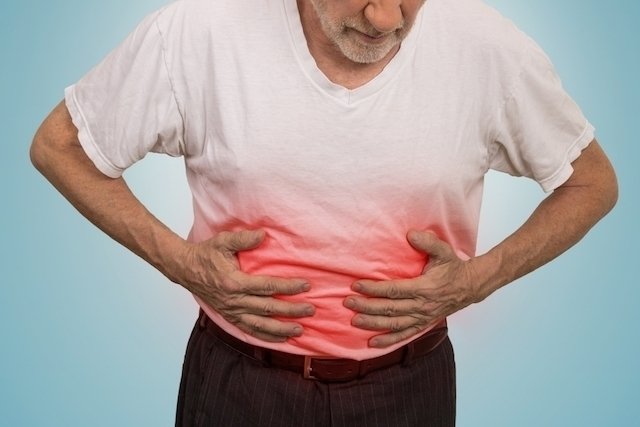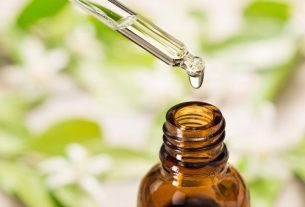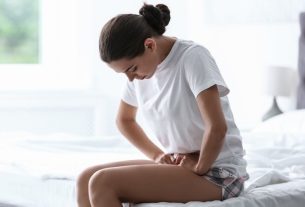Acute pancreatitis is inflammation of the pancreas that causes symptoms such as abdominal swelling and pain, sweating, nausea and vomiting, loss of appetite and diarrhea. Acute pancreatitis occurs mainly due to excessive consumption of alcoholic beverages or the presence of gallstones.
Generally, people with acute pancreatitis recover easily once the cause of the disease is identified and, therefore, it may be necessary to undergo surgery to remove gallstones, for example.
Acute pancreatitis is curable and treatment should begin in the hospital with medication directly into the vein, to alleviate symptoms.

Main symptoms
The main symptoms of acute pancreatitis include:
- Intense pain in the upper part of the belly, radiating to the back;
- Abdominal swelling;
- Excessive sweating;
- Increased heart rate;
- Nausea and vomiting;
- Loss of appetite;
- Fever;
- Diarrhea.
These symptoms may only last a few hours, but usually last for about 1 week. During this period, it is recommended to undergo medical treatment to alleviate symptoms, as well as identify the cause of pancreatitis, as some type of specific treatment may be necessary.
How to confirm the diagnosis
The diagnosis of pancreatitis can usually be made solely based on each person’s symptoms and medical history. However, the doctor also orders some tests, mainly blood tests to assess the levels of pancreatic enzymes in the blood, such as lipase, which tends to be very high in cases of pancreatitis. Understand more about the lipase test and the results.
In addition, other tests, such as computed tomography, magnetic resonance imaging or abdominal ultrasound, may also be requested to try to identify any changes that could be the cause of pancreatitis and that require more specific treatment.
Possible causes of pancreatitis
Although most cases of acute pancreatitis occur due to excessive alcohol consumption or the presence of gallstones, other causes exist:
- Side effect of any medication;
- Viral infections, such as mumps or measles;
- Autoimmune diseases.
Although they are rarer, these causes should also be investigated, especially if pancreatitis is not related to the most common causes.
How the treatment is carried out
Treatment for acute pancreatitis must be guided by a gastroenterologist, but generally consists of admitting the person and leaving them fasting, being hydrated only with saline solution into the vein. This procedure manages to alleviate pain in around 80% of cases, as it reduces the activity of the pancreas, which is heavily used in digestion.
In addition, the doctor may also prescribe the use of painkillers, Paracetamol or Tramadol, as well as antibiotics, to alleviate symptoms and prevent new infections. These medications can be continued even when the person is discharged and returns home.
In some cases, it may even be necessary to resort to surgery to remove gallstones or to remove the affected part of the pancreas. In these cases, the patient may develop diabetes, as the pancreas is responsible for producing insulin, and therefore may need to have insulin injections for the rest of their life. Find out more details about the treatment for acute pancreatitis and when surgery is indicated.
Diet for acute pancreatitis
The diet for acute pancreatitis consists of fasting for the first few days of hospital admission and until symptoms are controlled with medical treatment. In the most serious cases, the person receives feeding through a tube. Afterwards, feeding should be started gradually, giving preference to:
- Foods rich in carbohydrates and lean proteins;
- Fruits, vegetables, greens and vegetables,
- Water, teas or coconut water.
It is very important that the person does not consume very fatty foods, such as fried foods, cakes or snacks, as these foods require the enzymes produced by the pancreas to be correctly digested and, at this stage, the pancreas must rest to recover. Understand better what the diet for pancreatitis should be like.
Also check out other tips in the following video:
Bibliography
- NHS. Acute pancreatitis. Available at: <https://www.nhs.uk/conditions/acute-pancreatitis/>. Accessed on April 30, 2020
- NATIONAL INSTITUTE OF DIABETES AND DIGESTIVE AND KIDNEY DISEASES. Pancreatitis. Available at: <https://www.niddk.nih.gov/health-information/digestive-diseases/pancreatitis>. Accessed on April 30, 2020

Sign up for our newsletter and stay up to date with exclusive news
that can transform your routine!
Warning: Undefined array key "title" in /home/storelat/public_html/wp-content/plugins/link-whisper-premium/templates/frontend/related-posts.php on line 12
Warning: Undefined array key "title_tag" in /home/storelat/public_html/wp-content/plugins/link-whisper-premium/templates/frontend/related-posts.php on line 13




